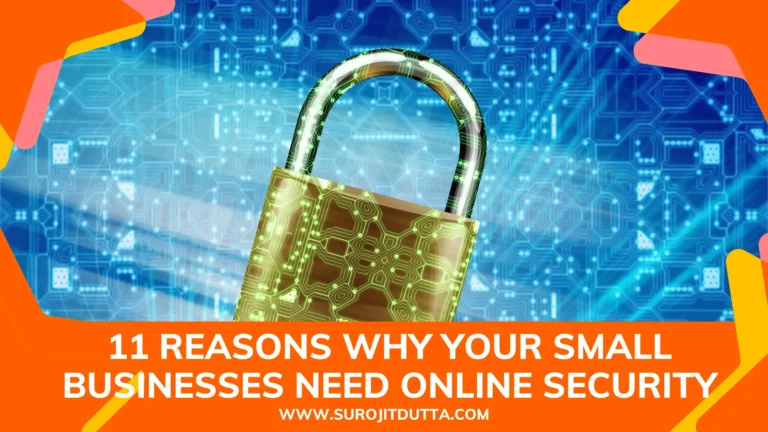Social media plays an important role in marketing and business today. Even if you don't have a social media presence, the chances are that your competitors do. It's not enough to just have a profile anymore; businesses need to engage with customers, respond to reviews, create content, and more.
If done right, this can help build trust with potential customers and increase sales through word-of-mouth advertising. However, if done wrong—or not done at all—a lack of engagement on social media can ruin your reputation before it even starts. In this guide we'll walk through how to protect your business on social media: from addressing negative reviews on Yelp or Tripadvisor to creating content calendars or scheduling posts for Facebook ads or Instagram stories; all while managing personal accounts as well!
Address Negative Reviews
Negative reviews or negative comments on social media of any post happen with almost all businesses or content creators. So how to protect your business on social media from these negative comments?
You may also like: 10 Online Security Risks That You May Not Know
- Respond to negative reviews. It's an unfortunate fact that all businesses will get negative reviews at some point. Use the opportunity to use social media as a way to apologize for any mistakes and offer assistance in resolving the problem.
- Address positive reviews. The best way to respond when you receive a good review is by thanking the customer for taking the time out of their day to share their experience with your business—and by helping others know about it! Promote and share these positive reviews on social media, especially if they're from customers who haven't been active participants before now (or ever).
Manage Your Business Social Media Accounts
- Create a Social Media Management Plan: Before you start managing your own accounts, think about how you want to handle your social media presence to protect your business reputation on social media. Think about what kind of content you want to post and how often, as well as how often you plan on responding to comments and questions.
- Have a Team of People Manage Your Social Media Accounts: If it's not part of their job description already, assign someone in your company the task of maintaining all of your social media accounts – they can manage them while they're working so that there's no downtime between posts or responses (and if they're busy with other tasks anyway).
- Make sure everyone knows what their role is when it comes to managing each account – for instance, some people might be responsible for posting new updates while others are responsible for responding to comments or messages from followers and customers. This process will help you to protect your business's social media reputation.
- Use a Tool that Makes Managing Multiple Platforms Easy: There are many tools that can make managing multiple accounts easier on social media managers by helping them schedule posts across multiple platforms at once without having to log into each platform individually every time; some even allow users access all their different profiles from one place online!
- You'll want this if there's more than one person handling multiple pages at once; otherwise, it might become too much work trying to keep track of everything going on across different apps at once instead.”
You May Also Like: 13 Tips To Increase ROI With Digital Marketing
Be Careful about What You Post On Personal Pages
When you're managing your personal social media accounts, it's important to keep the same security precautions in mind as you would with your business account. Don't post anything on these pages that could be damaging or embarrassing to your business. Here are some tips below to protect your business on social media.
Avoid Promotion Overkill
- Avoid promotion overkill. When you post too many promotional messages, it can turn people off. Instead, create a content calendar that includes information about your company and what's going on in the industry. Then share this content regularly so that you're not spamming people with only promotions or sales announcements.
- Post at regular intervals. If you only post a few times per month, followers may forget who you are—and they might even unfollow you because they don't see enough value in what you're posting to justify staying connected with your business on social media sites like Facebook and Twitter.
If possible, schedule posts ahead of time so that they'll go live automatically at certain times of day (e.g., between 8 am and 10 am), especially if these times coincide with when most of your customers are online.
You May Also Like: 21 Essential Social Media Checklist you should check
Use Social Listening
- Use social listening. Social media platforms are the best place to find what people are saying about your brand and its products. You need to know how customers feel about you so that you can address any issues they may have.
- Use tools to monitor conversations. There are many tools that will help you do this, including Google Alerts, Mention, Talkwalker, and more. These tools can also give you data on the number of people talking about certain topics or sharing certain content with each other in real time – which gives insight into what's currently trending among your target audience!
Create a Content Calendar or Schedule Posts
Create a Content Calendar or Schedule Posts
If you're making social media a priority in your business, it's important to schedule posts. When you post content automatically, it's more efficient and allows you to save time. You can also use tools that help you find what people are talking about so that your posts are timely and relevant.
Social Listening Tools
To get the most out of social media, consider using tools like Hootsuite or Sprout Social that will help you identify trends on each platform and make sure your content is always targeted toward those interests.
You May Also Like: Steps to Creating a Successful Social Media Marketing Campaign
Identify and Act on Key Moments/Trends
It’s important to keep track of the latest trends and social media happenings so you can use them to your advantage. You could do this manually by checking various sites such as Google Trends, Twitter Moments, or Facebook Insights regularly. Alternatively, you could use a tool like Hootsuite (or another platform) which allows you to monitor a range of platforms and see what’s going on in real-time.
Respond to User Generated Content (UGC)
- Respond to User Generated Content (UGC). When a customer shares their experience with you on social media, they’re creating UGC. Don’t just ignore it! Your customers want to know that you care about what they have to say and whether or not they like your product or service. By responding, you can turn an unhappy customer into a loyal one.
- Respond to negative reviews. If you receive a complaint about your business in any form of UGC, it’s important that you address the issue head-on—and quickly! In fact, 80% of customers expect businesses to respond within two hours when contacted via social media. It will help you to protect your business account reputation.
- This gives you an opportunity to start building relationships with these potential customers early on by showing them that their concerns are taken seriously by your company and making them feel valued as customers by doing so.
Communicate Authentically with Users
When your customers feel like they can relate to you, they’re more likely to trust and respect your brand. You want them to know that you are human—that you have good days, bad days, and everything in between.
This is also true for social media: if your feed is filled with posts about how great everything is going for the company (or worse yet—none at all), people are going to think something shady is happening behind the scenes.
If there’s something negative happening within your company or an issue with a product or service offered by your company (for example someone posting a negative review on Yelp), don't ignore it! The best way to handle this situation is by being honest and transparent while still being positive and friendly. By doing this you can save or protect your business's online reputation.
It's okay if there are some things that aren't perfect because nobody's perfect! Just be as open as possible while also keeping things professional so that users know they can trust what they're reading/seeing on social media accounts belonging to businesses run by these companies/organizations (e.,g: Uber).
You May also like: 12 Ways to Increase Your Online Security in Ten Minutes
Track Your Efforts to Measure Their Success
Once you’ve established your goals and strategies, you can use analytics tools to measure their success. You should also set up goals before starting a social media campaign and track progress against those goals throughout the process.
This will help you identify areas for improvement when it comes time to look back on your efforts later on. Using reports from social media platforms can help identify these areas as well.
Protecting your business on social media is necessary
Social media has become a significant channel for building your business. It’s also one of the most powerful ways to destroy your business. The good news is that there are many ways you can protect your brand on social media, both manually and by hiring a professional.
Whether you want to do it yourself or hire someone else, here are some tips:
- Post high-quality content (photos, videos, etc.) daily or weekly at the very least.
- Reply quickly when someone comments on a post or sends you an email.
- Curate other people’s content that’s relevant to what you do.
You may also like: SSL Certificate: What Is It and Why Do you Need One?
Conclusion
These are only some of the ways to protect your business on social media. The more you can do, the better off you’ll be.
But don’t forget that it’s not all about taking action; sometimes just being aware of how people perceive your brand is enough to keep your customers happy and keep them coming back for more.










1 thought on “10 Steps To Protect Your Business On Social Media in 2025”
Your article helped me a lot, is there any more related content? Thanks! [Link deleted]